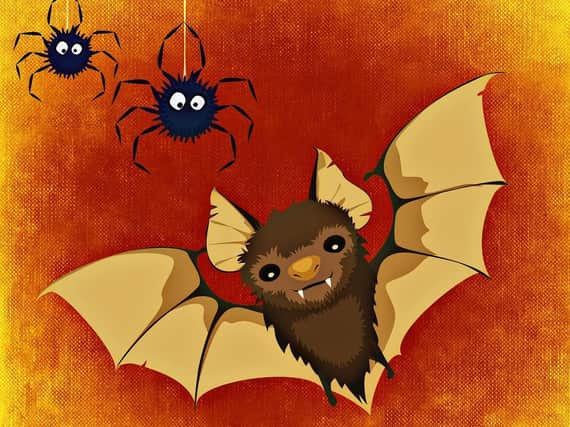Halloween - a fearful time of year for many people


The rule of six will make parties difficult and social distancing and difficulties with sanitising doorbells and treats will make trick or treating challenging.
It is a shame for youngsters, who mostly look forward to it. Yet for a lot of people who have phobias, it may not be a bad thing this year.
Advertisement
Hide AdAdvertisement
Hide AdA phobia is an intense fear of certain situations, activities, things, or creatures. There is a huge list of these, most of which have exotic names.
The term phobia comes from the Greek phobos, meaning fear or morbid fear.
The thing is that the fear is more than slight anxiety, it can verge on panic and it induces a desire to avoid the situation or get away from the situation as quickly as possible.
The commonest phobias are specific phobias. Indeed many of the symbols of Halloween have them. Arachnophobia is a fear of spiders and for some people the mere sight of spiders, real or toys, can make them fearful.
Advertisement
Hide AdAdvertisement
Hide AdChiroptophobia is a fear of bats, so Halloween can be a real torment. Ailurophobia is an intense fear of cats, which of course makes the black cats of Halloween very troublesome.
A social phobia, as the name implies, is a fear of some social activity or social situation.
One of the very commonest social phobias is a phobia of public speaking. The term for this is glossophobia, from ‘glossa’, meaning tongue and ‘phobos’, which as you know, means fear.
It is followed closely by a phobia of simple conversation. To put it into perspective, social phobias occur in one person in ten. That is a lot of people.
Advertisement
Hide AdAdvertisement
Hide AdThe causes of phobias are numerous and include evolutionary, experiential and behavioural theories.
Because each phobia is different there is no single approach that will work for everyone, but there should be a way of getting help for any phobia.
If you believe that you have a phobia then you may find the following NHS website: https://www.nhs.uk/conditions/phobias/self-help/ has useful information about self help that you can try.
This includes links to other useful sites, and NHS-approved mental health apps that you can download and use.
Some are free and others have a cost, which is listed.